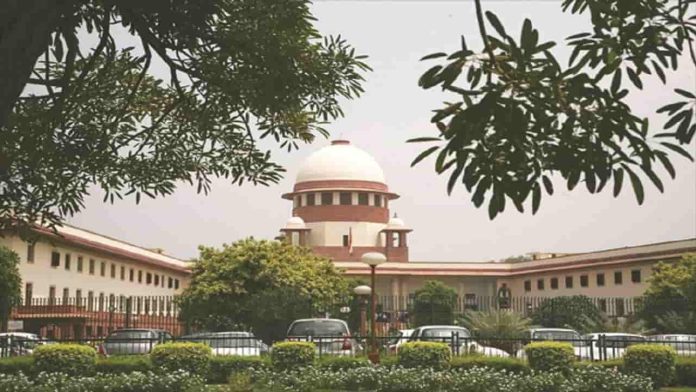The petitions challenging the Places of Worship (Special Provisions) Act, 1991 (Act) will be heard by the three-judge bench of the Supreme Court.
The Place of Worship Act states that all religious places of worship should be maintained there were on August 15, 1947 and no suit or proceeding shall lie in a court of law regarding the same.
The Court decided that while considering issue involved, the 3 judge bench shall be hearing the matter on October 11, 2022. In the meantime all parties are directed to complete pleadings in the matter.
The bench of Chief Justice of India Uday Umesh Lalit found that although a division bench of the Court had issued notice in the case, no reply was filed by the Central Government.
The two weeks time has been given to the government to a file a reply and another week for the rejoinder.
The court has also allowed applications by the Royal Family of Kashi and Jamiat Ulema-i-Hind to intervene in the matter.
It stated “Centre granted 2 weeks time to file a reply, rejoinder a week thereafter. Host of applications seek impleadment, considering nature of controversy we allow these applications and allow them to intervene in this matter.”
This law was introduced when the Ram Janambhoomi matter was at the peak and the sole purpose of its introduction was to protect the status of all religious structures as it stood on the date of independence by barring courts from entertaining cases which raises dispute over the character of such places of worship.
The law also provided that such cases already pending in courts would stand abated.
However, the act carved an exception for Ram-Janambhoomi site which was the basis for courts including High Court and Supreme Court to examine the issue and deliver judgment.
As the land of Ayodhya was exempted, the Supreme Court had invoked this law in 2019 while awarding the disputed site at Ayodhya to child deity Ram Lalla.
The Apex Court had however told that no such case will ever be entertained with respect to other sites in view of the Act.
A plea was filed by BJP spokesperson Ashwini Upadhyay who said that the act allows illegal acts of invaders to continue for perpetuity by barring legal remedies to Hindus, Jains, Buddhists and Sikhs.
Upadhyay has contended that the Central government has without resolution of the disputes through process of the law, abated the suit/proceedings, which is ‘per se’ unconstitutional and beyond its law making power.
Justice Chandrachud had orally observed,
“Ascertainment of religious character is not barred under Section 3 of the 1991 Act. Suppose there is a Parsi temple and there is a cross in the corner of the area. Does the presence of Agyari make the cross Agyari or Agyari Christian? This hybrid character is not unknown.”
The Jamiat Ulama-I-Hind (applicant) moved the Supreme Court seeking impleadment in the plea by Upadhyay, stating that the target here is only the Islamic places of worship.
The applicant wished to be impleaded so as to put forth the views of the Muslim community.


